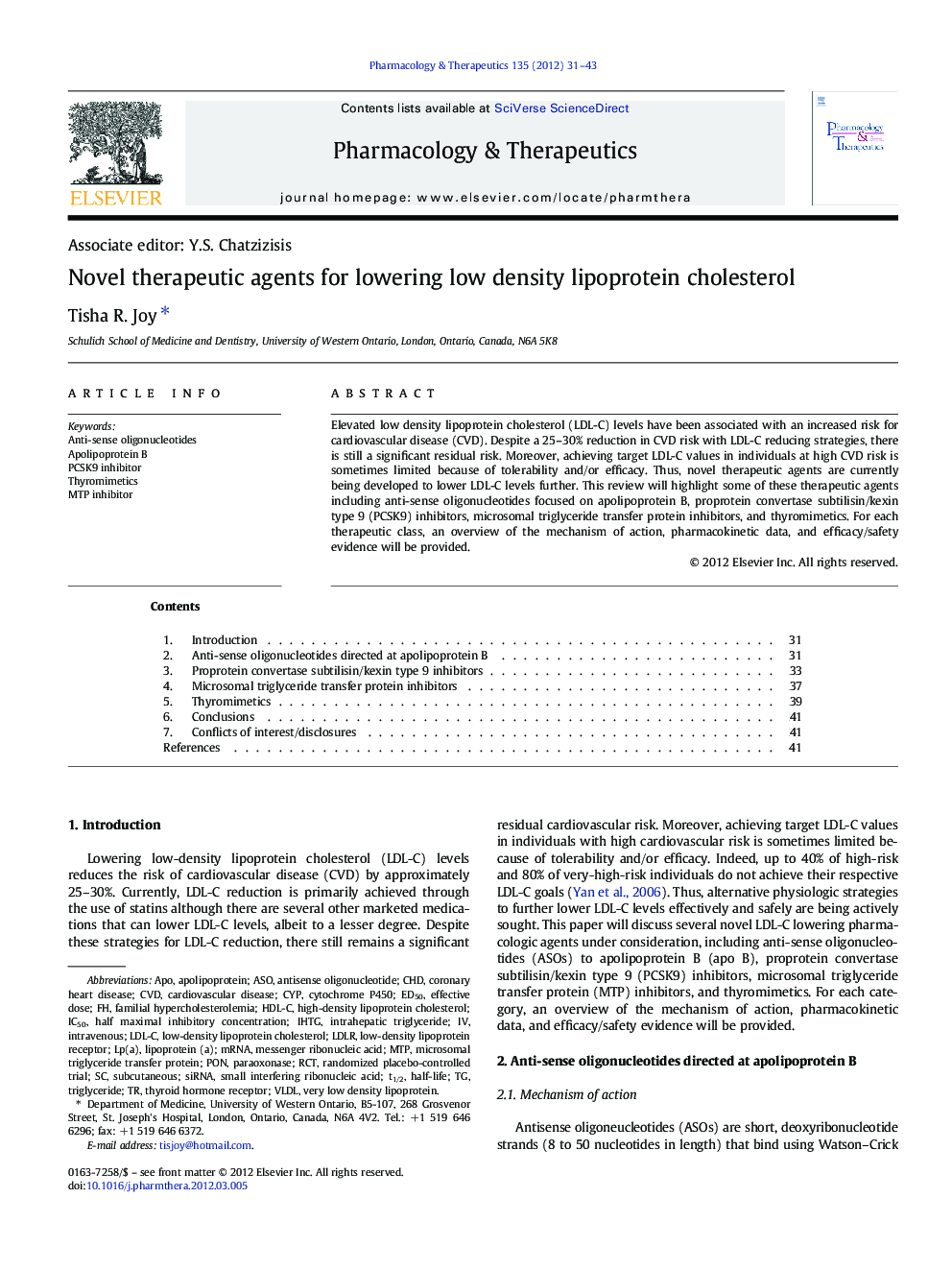| Article ID | Journal | Published Year | Pages | File Type |
|---|---|---|---|---|
| 2563306 | Pharmacology & Therapeutics | 2012 | 13 Pages |
Elevated low density lipoprotein cholesterol (LDL-C) levels have been associated with an increased risk for cardiovascular disease (CVD). Despite a 25–30% reduction in CVD risk with LDL-C reducing strategies, there is still a significant residual risk. Moreover, achieving target LDL-C values in individuals at high CVD risk is sometimes limited because of tolerability and/or efficacy. Thus, novel therapeutic agents are currently being developed to lower LDL-C levels further. This review will highlight some of these therapeutic agents including anti-sense oligonucleotides focused on apolipoprotein B, proprotein convertase subtilisin/kexin type 9 (PCSK9) inhibitors, microsomal triglyceride transfer protein inhibitors, and thyromimetics. For each therapeutic class, an overview of the mechanism of action, pharmacokinetic data, and efficacy/safety evidence will be provided.
